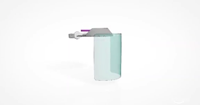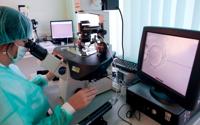CHICAGO, Ill. (WSIL) -- With temperatures expected to rise to dangerous heat levels, heart risks also increase.
the American Heart Association (AHA) has issued important warnings when it comes to taking extra precautions when dealing with the high heat, especially those with existing heart disease.
More than 1,200 people die each year in connection to extreme heat, according to the .
A recent suggests cardiovascular disease deaths, in connection to extreme heat, may double over the course of the next 20 years.
The AHA says the heat and dehydration put significant stress on the heart.
Certain heart medications can also heighten the body's response to heat, AHA reports. These include beta blockers, ace receptor blockers, ace inhibitors, calcium channel blockers and diuretics.
The Association advises individuals prescribed these medications to take extra precautions during heat waves. However, it is important to continue taking medications unless instructed otherwise by a health care professional.
By staying informed and cautious, individuals can protect their heart health during periods of extreme heat.
The AHA provided some precautions to take during these hot days of summer:
- Watch the clock: It’s best to avoid the outdoors in the early afternoon (about noon to 3 p.m.) because the sun is usually at its strongest, putting you at higher risk for heat-related illnesses.
- Dress for the heat: Wear lightweight, light-colored clothing in breathable fabrics such as cotton, or a newer fabric that repels sweat.
- Drink up: Stay hydrated by drinking a few cups of water before, during and after going outside or exercising. Avoid caffeinated or alcoholic beverages.
- Take regular breaks: Find some shade or a cool place, stop for a few minutes, hydrate and start again.
Here are some signs and symptoms the AHA provided when experiencing too much heat:
- Headaches
- Cool, pale and moist skin
- Fast, weak pulse
- Dizziness and light-headedness
- Weakness or muscle cramps
- Nausea and vomiting
- Passing out
Here are some symptoms the AHA provided of a heat stroke:
- High body temperature (103 degrees Fahrenheit or higher)
- Hot, red, dry or damp skin
- Fast, strong pulse
- Headache, dizziness and confusion
- Nausea
- Passing out
For more information about your heart, you can find it .














